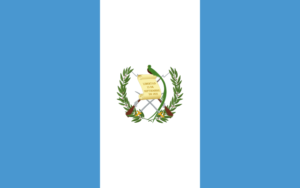
Region: Americas
Disability Definition
A disability in relation to a person, means-
total or partial loss of the person’s bodily or mental functions;
total or partial loss of a part of the person’s body;
the presence in the body of organisms causing disease or illness;
the presence in the body of organisms capable of causing disease or illness;
the malfunction, malformation or disfigurement of a part of the person’s body;
a disorder or malfunction that results in the person learning differently from a person without the disorder or malfunction; or
a disorder, illness or disease that affects a person’s thought processes, perception of reality, emotions or judgment or that results in disturbed behavior,
and includes a disability that- (i) presently exists; (ii) previously existed but no longer exists; (iii) may exist in the future; or (iv) is imputed to a person
Legislation
Disability Discrimination Ordinance: Section 6
A person discriminates against another person in any circumstances relevant for the purposes of any provision of this Ordinance if-
(a) on the ground of that other person’s disability he treats him less favorably than he treats or would treat a person without a disability;
(b) he applies to that other person a requirement or condition which he applies or would apply equally to a person without a disability but-
(i) which is such that the proportion of persons with a disability who can comply with it is considerably smaller than the proportion of persons without a disability who can comply with it;
(ii) which he cannot show to be justifiable irrespective of the disability or absence of the disability of the person to whom it is applied; and
(iii) which is to that person’s detriment because he cannot comply with it; or
(c) on the ground of the disability of an associate of that other person he treats him less favorably than he treats or would treat a person without such a disability.
Keep current and add – In terms of national laws and policies, the following have the most direct bearing on the rights of persons with disabilities:
- The Decree No.135-96 Law on the Attention to People with Disabilities from 1996. It has not been harmonised with the Inter-American Convention or UN Convention of the Rights of Persons with Disabilities. The implementation of the Law has been weak and it is criticised as inapt by civil society organisation. A new legislation proposal was presented to the Congress in November 2013 by the High Level Commission for the Harmonization of the Legal Framework of Disabilities (appointed by the Health and Social Assistance Commission of the Congress and with representatives from various DPOs). The proposal has not been approved.
- Modification of the Decree 135-96 in 2011 to recognise short people as persons with disabilities.
- The National Disability Policy (2006).
- The Law on Special Education for Persons with Special Education Needs with and without Disabilities (2007).
- Decree No. 76-97 National Law on the Development of Physical Culture and Sports (1990) and the National Law on Sports Decree 76-97 Non-Affiliated Sports (Deporte no Federado) (1998).
Reference: https://cdn.sida.se/app/uploads/2021/05/10143447/rights-of-persons-with-disabilities-guatemala.pdf
Employer Legal Requirements
There are no regulations or legislation that are directly addressing the situation of disabled people in terms of employment.
There are statements in the Constitution that are set to promote persons with disabilities.
Article 53 of the Political Constitution – “The State guarantees the protection of the disabled and of those persons who suffer from physical, psychic, or sensory limitations. Their medical-social care, as well as the promotion of the policies and services that make their rehabilitation and their full reincorporation into society possible.”
Accessibility Requirements
There are no regulations or legislation that are directly addressing the situation of disabled people in terms of accessibility for the workplace.
The Assistance to Persons with Disabilities Act “includes very specific objectives and goals for guaranteeing the development of persons with disabilities in communities, such as providing universal coverage, improving the quality of services and giving the relevant institutions the necessary resources. It establishes priorities which persons with disabilities may also claim under the Constitution, for benefits relating to education, health and social welfare, citizen security, environment and natural resources, agriculture, communications, infrastructure and housing, the economy and recreation and sports, among others.”
Cultural Norms
Guatemala does not have strong legislation in place for the rights of persons with disabilities. The implementation of most laws for disabilities have been weak because they aren’t recognized with basic human rights.
“Given the serious human rights situation in the country disability rights seem to be overshadow by other forms of discrimination and are rarely considered in national social programs or in donor support to human rights defenders.”
Business Practices/Examples
Additional content coming soon.Insights
“The first National Survey on Disabilities was conducted in 2005; it shows that four out of every 100 persons in Guatemala have some type of disability, indicating a nationwide disability prevalence rate, in that year, of 3.74 per cent.”
More recent data was found from The National Survey of Disability in Guatemala 2016 an estimated 10.2% of all ages live with a disability and a third of all households in Guatemala include at least one person with disabilities.
Supplier Diversity
Additional content coming soon.Talent Sourcing Resources
Additional content coming soon.Additional Resources
National Council for the Attention to People with Disabilities (CONADI) – Responsible for coordinating, advising, and promoting the implementation of public policies in compliance with the CRPD
References
Guatemala – Law of Attention to Persons with Disabilities
